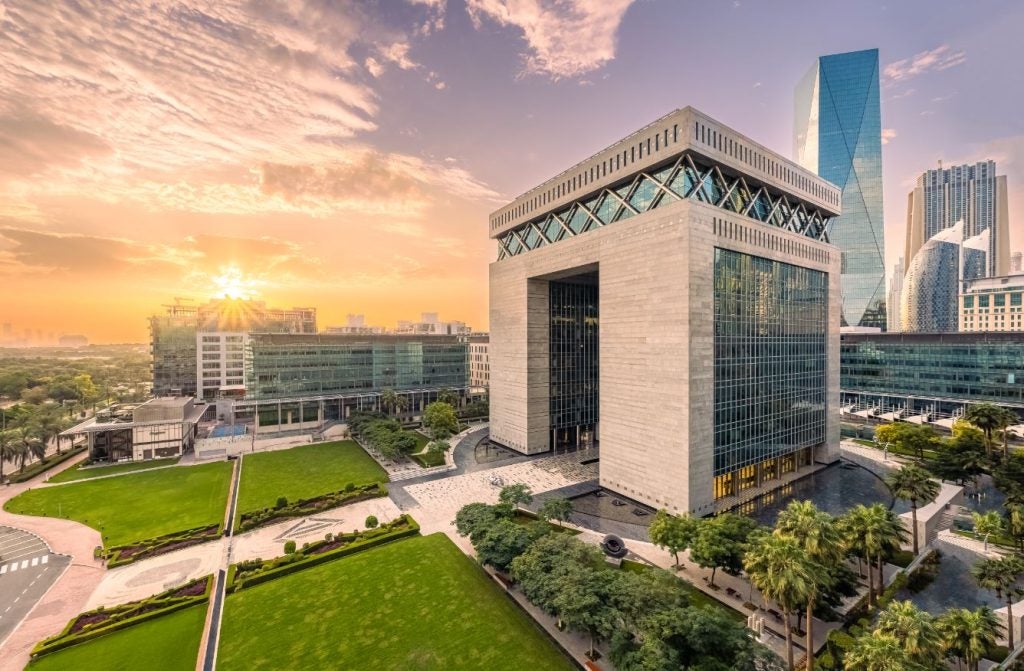perceived to be one of the best-placed institutions to capitalise
on the spiralling number of dollar millionaires at home and abroad,
has rebranded its private client division in anticipation of
further opportunities worldwide. Dan Jones reports.
The launch of the new ICICI Group Global Private Clients (GPC)
division is not an overhaul of ICICI’s wealth management operations
but rather an acknowledgement of the difficulties private banks
face in attempting to promote their brand on a global level and
also to emulate their global strengths in their domestic
market.
Girish Nayak, head of this operation, which will be open to those
with investable assets of $1 million or more with ICICI, said that
ICICI has come to realise that the regulatory environment across
the globe necessitated a fine-tuning of its wealth unit. In Canada,
for example, regulatory requirements mean that ICICI must operate
through a subsidiary, ICICI Wealth Management, while in the
differing legislative environment in the US mean that wealth
operations come under the banner of ICICI Securities.
“For about three or four years the business was focused on the
Indian niche,” Nayak told PBI. “As the business has evolved
internationally as well as domestically, it has been done slightly
differently in the various countries as we started moving out of
India – we discovered this issue of the bank not being the most
efficacious entity to do this business in certain locations. The
thought was to encompass all this into a single band, so that
irrespective of what entity is doing the business, the client
experience is uniform. We recognise the global needs of the client
spanning multiple geographies, and hence aim at delivering a
continuous brand experience.”
Plans for future growth
ICICI, India’s biggest non-state bank and winner of the Outstanding
Regional Private Bank – Asia Pacific Award at the Private Banker
International Wealth Management Summit in 2007, outlined its plans
for future growth late last year.
How well do you really know your competitors?
Access the most comprehensive Company Profiles on the market, powered by GlobalData. Save hours of research. Gain competitive edge.

Thank you!
Your download email will arrive shortly
Not ready to buy yet? Download a free sample
We are confident about the unique quality of our Company Profiles. However, we want you to make the most beneficial decision for your business, so we offer a free sample that you can download by submitting the below form
By GlobalData“We are growing at an average of 65-70 per cent for the last three
years and we continue to remain optimistic about the future,”
global private banking head Anup Bagchi declared, adding that the
bank was looking to maintain such growth rates over the next fiscal
year.
Market conditions have dampened the euphoria this quarter, says
Nayak, but the optimism on achieving similar growth targets this
year still remains. Domestic inflation has shot up, with YV Reddy,
governor of the Reserve Bank of India, calling the situation
“totally unacceptable”; nor has India fully escaped the
repercussions of the credit crisis and slowing of global markets.
There is increased risk-averseness among clients across the
globe.
Says Nayak: “In the very near term there would be some impact from
the prevailing economic scenario on the global private clients
[GPC] business. But if I had to take a medium or long-term view, I
would have to say we are still very much on course because overall
wealth creation in the community is still taking place. The Indian
growth story is still very strong – people still want to invest in
India. Also, it is an ideal opportunity for us to bring back the
disciplined investment approach to clients’ portfolios and
establish long-term relationships.”
One region which is increasingly turning to India for investment
purposes is the Middle East.
“An expansion of the investment footprint of Arab countries in
India is long overdue and would be most warmly welcomed by the
government and business alike,” external affairs minister Pranab
Mukherjee said ahead of a visit to Saudi Arabia in April. The
process is increasingly symbiotic: according to a recent report
from Dun & Bradstreet, the United Arab Emirates is fast gaining
on the US as India’s leading export destination.
But such trends are not confined to a macroeconomic level. ICICI
Bank is now present in the UAE, Qatar and Bahrain, and intends to
introduce its GPC offering to Oman via the ICICI Securities.
“For the last three to four years our teams have been in the ground
on the Middle East and they have been able to showcase India to
investors. The appetite is significant. We have shown them various
investment avenues in India and similar markets globally; new asset
classes such as private equity funds, real estate funds, art funds
and other offerings.” Nayak says.
The lack of liquidity seen in Western markets is also prompting a
renewed emphasis on the region.
“We will definitely be increasing the relationship manager coverage
in these markets; we would definitely want to tap the potential of
the Middle East market significantly in the coming year,” Nayak
adds.
The world’s leading private banks have similarly turned their
attention to India. Players such as Citigroup, Merrill Lynch,
Barclays, Morgan Stanley and Deutsche Bank have all begun to
develop operations in the country. But ICICI, as with many banks
which retain a healthy lead in their domestic markets, remains
confident in its ability to withstand the influx of external wealth
managers.
Leaning on branding strength
In this regard, the bank is again leaning on its branding
strengths. Nayak suggests. “The customers have seen how fickle most
of the players are to their Indian investments as a part of their
global portfolio. Last time there was a downturn they saw how many
players left the region. Whereas they know we will always be in the
market. This basic trust they have in us is one of our key
strengths.”
Accordingly, the principal ICICI advertising campaign deployed in
India emphasises this through the tag line ‘Hum Hain Na’ (‘We are
there – always’). Also, the tag line for GPC is appropriately
drafted in line with the client-centric approach as ‘Life. On your
terms’. The central ethos of the GPC brand lies in ICICI Group
understanding the client, understanding the clients’ needs, whether
stated or unstated, defined or undefined, verbalised or unspoken.
This makes the offering one with the client and hence delivering an
experience in line with is life, on his terms.
The first phase of the road map for foreign banks in India is now
drawing to a close, with external institutions having been able to
set up a wholly owned subsidiary in the country since 2005. These
regulations will change in April 2009 following a review of the
initial process, with the likelihood being that foreign banks will
be allowed further access to the Indian market. Nayak notes that in
the absence of any communications received on the extent or nature
of such changes, any comments on this will be “pure speculation”,
but sees the bank’s core proposition continuing to dominate
“irrespective of what happens after 2009”.
The message of trust and stability is reinforced by the bank’s
status as the largest private sector bank in India. The scale and
size of ICICI’s presence means that a much broader offering can be
provided. The SME bank, for example, helps filter a “significant
amount of customer wealth which is there in the form of business,”
according to Nayak.
But the strengths of Indian business, and hence the wider economy,
may mean that the domestic private client finds themselves
overexposed to a single market.
As Nayak puts it, “It is difficult to tell an investor in a
completely bull market to diversify and get 6 to 8 percent returns
elsewhere when local markets are giving over 20 percent
returns.”
The context of the last three years, with an appreciating rupee, a
strong stock market and a real estate boom, means that “the global
part of the portfolio is largely absent for the domestic Indian
client”. The changing environment, however, is seen as a positive
factor.
“I think the current correction in the markets would probably be
the kind of experience that would help in the education process,”
Nayak predicts. “If you look at the trend on the corporate side,
Indian businesses have been expanding globally. So slowly but
surely domestic Indian investors will start looking at a global
portfolio for their own wealth.”
Similarly, the handling of wealth within the domestic market is
typically focused on clients themselves deciding where and what to
focus on. A predilection for advisory services has not yet
materialised, but Nayak does envisage these dynamics changing in
the future as portfolios expand and mature.
The private banker cautions that such changes will not happen
overnight, and acknowledges that the current situation is “still
quite some distance” from being ideal in terms of asset allocation.
Yet this is far from the case for non-resident Indians (NRIs), a
demographic that is becoming increasingly important not just for
ICICI but for private banking players worldwide.
Merrill Lynch and SG Hambros are two such banks looking to raise
interest from the lucrative segment, though analysis from Standard
Chartered has suggested that the domestic Indian wealth market
could provide greater value in future (see
Competition heats up). Nonetheless, NRIs’ exposure to the
offerings of foreign private banks means that they have a taste for
offerings far removed from the equities and real estate assets
traditionally favoured by domestic clients.
As the domestic client market matures, so too does the standard of
Indian private bankers. ICICI was one of the first to address the
shortage of relationship managers, reaching agreements with over 25
management schools across India to provide MBA courses with private
banking curriculum.







